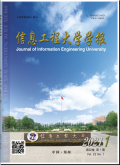信息工程大学学报2024,Vol.25Issue(4):447-452,6.DOI:10.3969/j.issn.1671-0673.2024.04.012
一种基于深度神经网络的多阶段PUF抗建模能力评估方法
A Deep Neural Network-Based Multi-Stage Evaluation Method for Modeling Resistance of PUFs
摘要
Abstract
To address the limitation of current evaluation methods in assessing the modeling resistance of Physical Unclonable Function(PUF),a three-level modeling threat model that PUFs encounter is de-fined.This model details the attacking target,the adversary's knowledge and capabilities,the attack-ing strategy,and the attacking mode.A deep neural network-based multi-stage evaluation method is proposed to assess the resistance of PUFs to machine learning modeling attacks,reliability-based at-tacks,and power/electromagnetic side-channel attacks.The method is carried out in three sequential phases,using feed-forward neural network modeling attacks and side-channel modeling attacks as the assessment tools,ensuring a comprehensive PUF modeling resistance assessment.The evaluation re-sults indicate that only a small number of the tested PUFs display resistance to machine learning and reliability modeling attacks.However,none of them demonstrate resistance to power side-channel mod-eling attacks.关键词
深度神经网络/物理不可克隆函数/抗建模/侧信道/评估Key words
deep neural network/physical unclonable function/modeling resistance/side channel/evaluation分类
信息技术与安全科学引用本文复制引用
刘威..一种基于深度神经网络的多阶段PUF抗建模能力评估方法[J].信息工程大学学报,2024,25(4):447-452,6.基金项目
河南省重点研发项目(221111210300) (221111210300)

